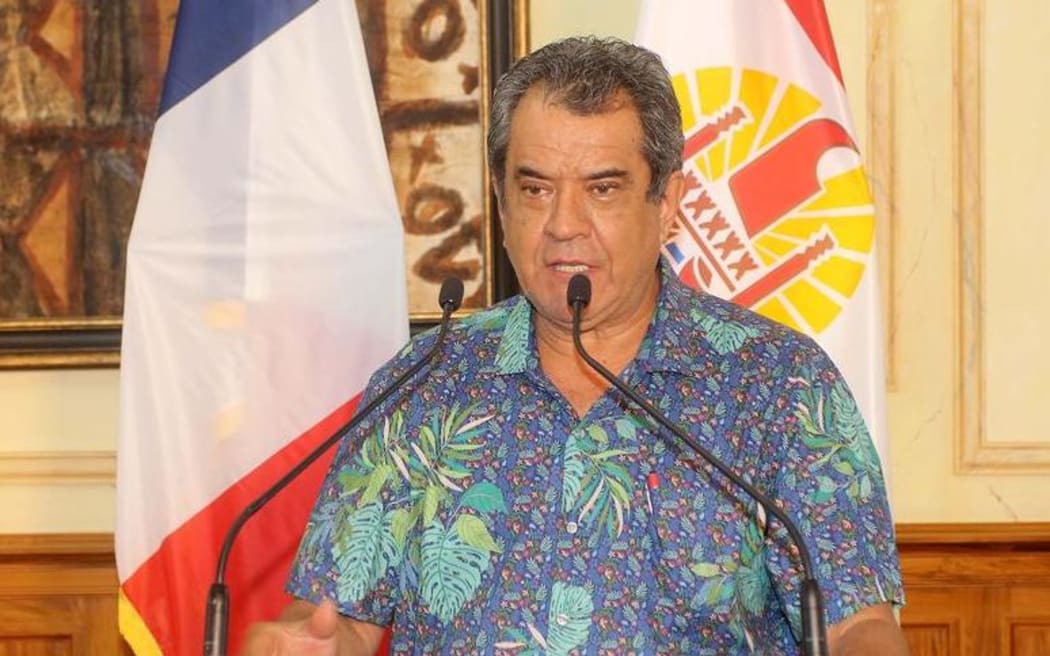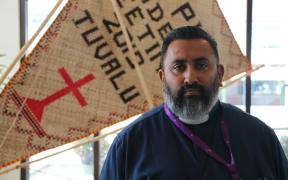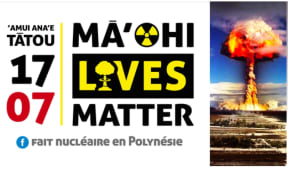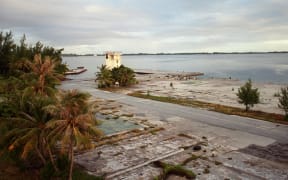
The explosion from a French nuclear test at Mururoa in French Polynesia. France conducted 193 tests between 1966 and 1996. Photo: AFP
The French state should pay for a study on the genetic impact of its nuclear weapons tests in the South Pacific, the French Polynesian president Edouard Fritch says.
Fritch was responding to a renewed call by the opposition Tavini Huiraatira party to follow up on reports dating back to 2016 that radiation caused disabilities in the atolls near the blast zones.
The president confirmed that since 2017 there had been a budget allocation of $US17,000 for such a study but said after careful consideration he was of the view that it should be funded by the French state.

Edouard Fritch Photo: supplied
Fritch added that the opposition's French National Assembly members could raise the matter in Paris.
In 2018, the former head of child psychiatry in Tahiti Dr Christian Sueur reported pervasive developmental disorders in areas close to the Morurua test site.
The findings caused an uproar in French Polynesia and Fritch accused Sueur of causing panic.
Fritch then approached a Japanese geneticist Katsumi Furitsu to establish if the weapons tests had caused genetic mutations.
However, she declined the invitation, with press reports suggesting she was dissuaded by the controversy surrounding the subject.
In his assessment, Sueur noted that of the 271 children he treated for pervasive developmental disorders, 69 had intellectual disabilities or deformities which he attributed to genetic mutations.
He also reported that on Tureia atoll, a quarter of the children present during the 1971 blast had developed thyroid cancer.
Sueur said in 2012 among the atoll's 300 residents there were about 20 conditions believed to be radiation-induced.
He said the genetic conditions were found mainly in children whose parents and grandparents had been exposed to radiation from the atmospheric weapons tests in Moruroa between 1966 and 1974.
A French military doctor, however, said his team had found nothing out of the ordinary.
He told the newspaper Le Parisien that the behavioral and developmental problems in children were linked to high levels of lead from car batteries used in fishing.
Until 2010, France said its tests were clean and had no effect on human health, but Paris has since adopted a law offering compensation for victims suffering poor health because of exposure to radiation.










